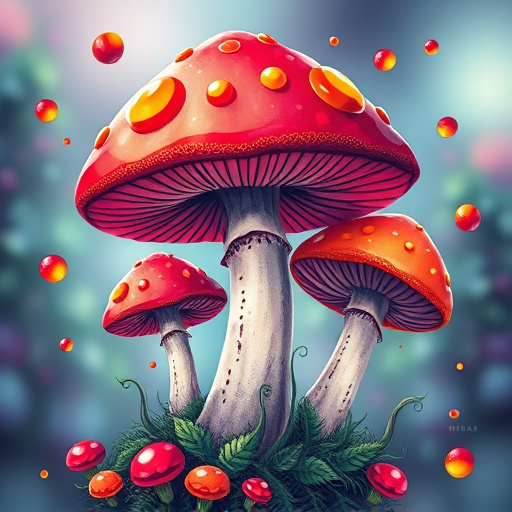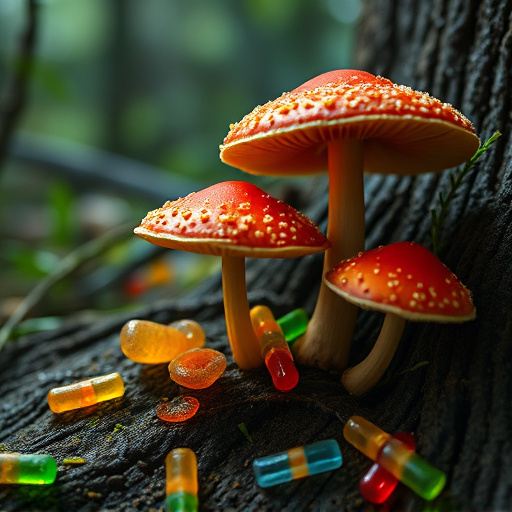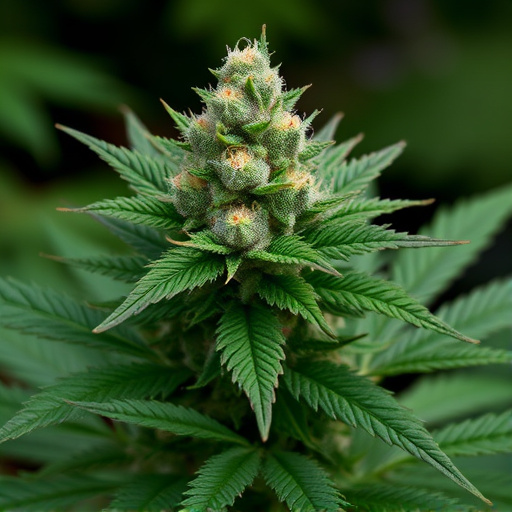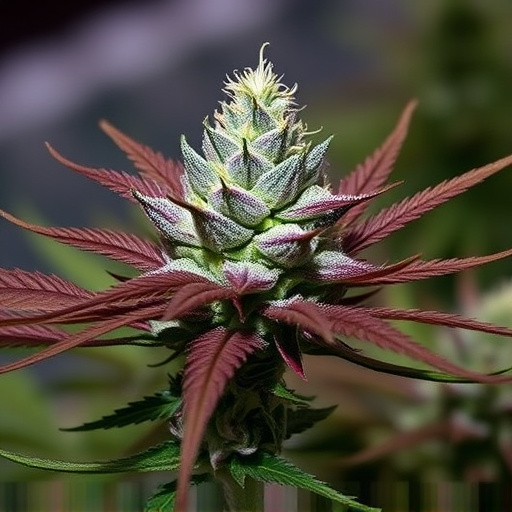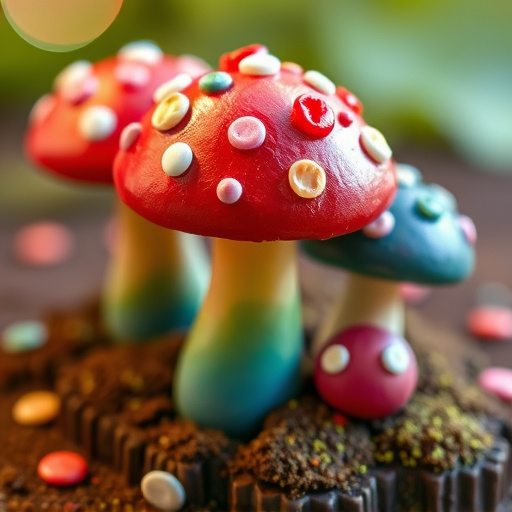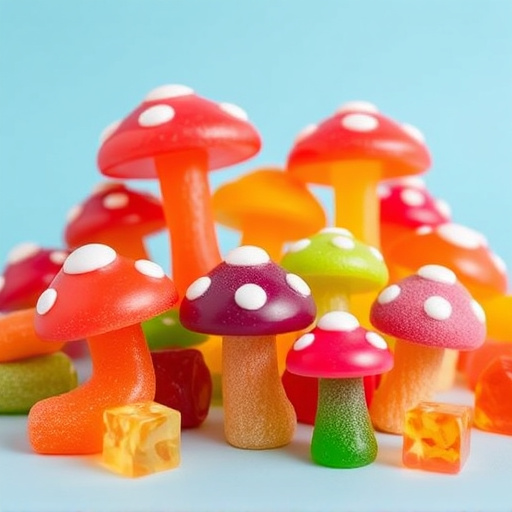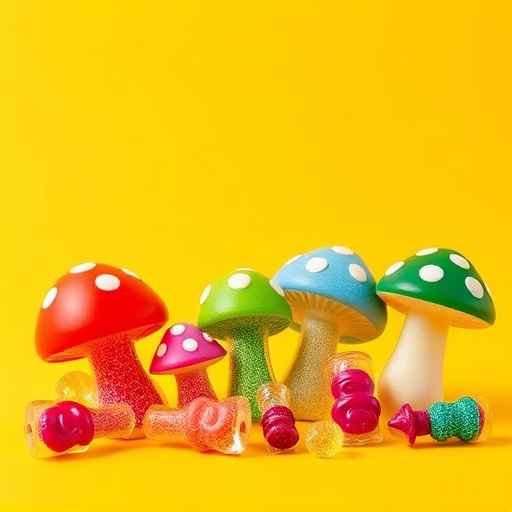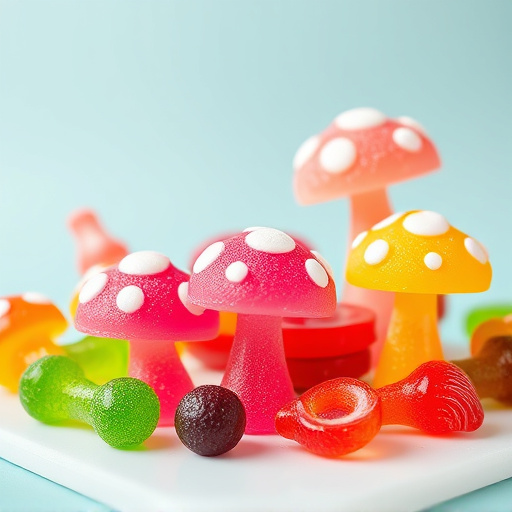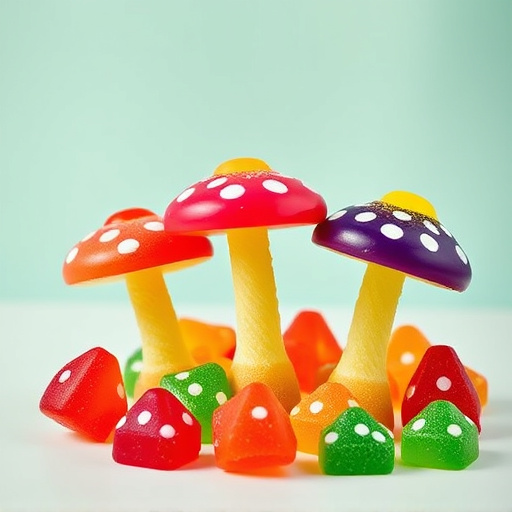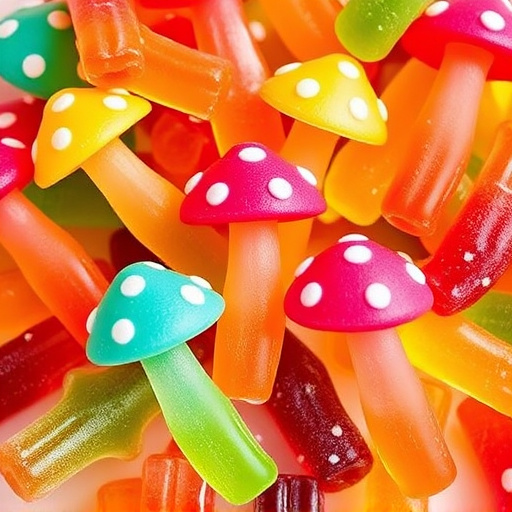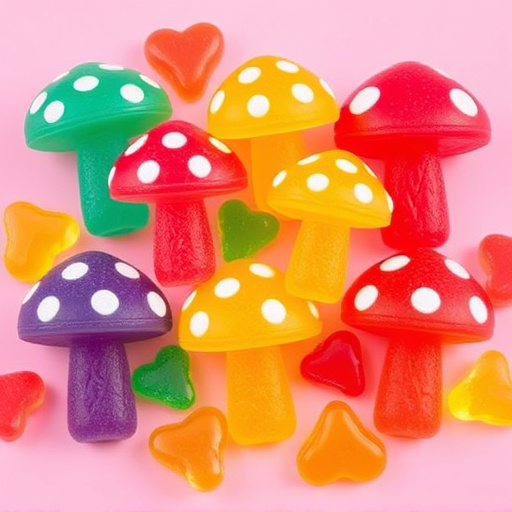Magic Mushroom Gummies, infused with psilocybin, offer precise dosages for controlled psychedelic experiences. Psilocybin enhances brain plasticity by interacting with serotonin receptors, promoting neuroplasticity and stimulating BDNF release. Research suggests potential long-term improvements in cognitive flexibility, creativity, emotional resilience, and therapeutic benefits for mental health conditions like depression and anxiety. However, consumers should approach these gummies with caution due to intense psychological reactions and possible adverse effects, emphasizing the need for professional supervision or therapeutic settings.
“Unravel the intriguing world of Magic Mushroom Gummies—a modern twist on traditional psychonautic aids. This article delves into the essence of these innovative treats, exploring their composition, unique effects on brain plasticity, and a range of potential benefits. We weigh the advantages against risks, offering insights for informed decisions. Discover how these gummies, with their captivating properties, are reshaping perceptions while sparking scientific interest in Magic Mushroom Gummies and their impact on brain functionality.”
- What Are Magic Mushroom Gummies?
- How Do Magic Mushrooms Affect Brain Plasticity?
- Potential Benefits and Risks of Using Magic Mushroom Gummies
What Are Magic Mushroom Gummies?

Magic Mushroom Gummies are a modern twist on traditional psychedelic experiences, offering a convenient and potentially therapeutic way to explore consciousness. These gummies are infused with psilocybin, the active compound found in certain species of magic mushrooms known for their mind-altering effects. Unlike their natural counterparts, which can be inconsistent in dosage and effect, gummies provide a precise and controlled experience.
The unique aspect of Magic Mushroom Gummies lies in their potential to enhance brain plasticity. Psilocybin has been shown to stimulate neuroplasticity, the brain’s ability to form new neural connections, which may lead to profound insights, altered perspectives, and even lasting positive changes in mental health. Research suggests that this compound can help individuals break free from negative thought patterns, reduce anxiety, and open doors to creative thinking—all while providing a safe and guided journey.
How Do Magic Mushrooms Affect Brain Plasticity?
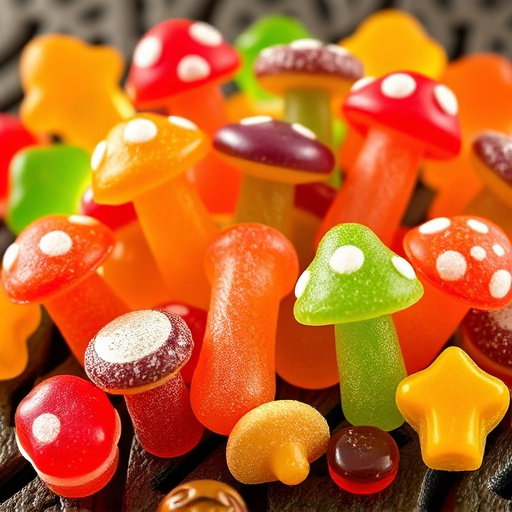
Magic mushrooms, or psilocybin mushrooms, have been a subject of interest in psychedelic research for their potential to affect brain plasticity—the brain’s ability to change and adapt as a result of experience. When consumed, psilocybin, the active compound in magic mushrooms, is metabolized into psilocin, which interacts with serotonin receptors in the brain, particularly those involved in cognitive processes and mood regulation. This interaction can lead to altered states of consciousness, but it also offers insights into how the brain rewires itself.
Research suggests that magic mushroom experiences can promote neuroplasticity, enhancing the growth of new neural connections and improving cognitive flexibility. Studies have shown that psilocybin use may stimulate the release of brain-derived neurotrophic factor (BDNF), a protein crucial for learning and memory, and support the development of new neurons. This effect could lead to long-lasting changes in brain function, contributing to increased creativity, enhanced emotional resilience, and even potential therapeutic benefits for conditions like depression and anxiety. Understanding these mechanisms provides a compelling case for the clinical exploration of magic mushroom gummies as novel therapeutic tools in mental health treatment.
Potential Benefits and Risks of Using Magic Mushroom Gummies
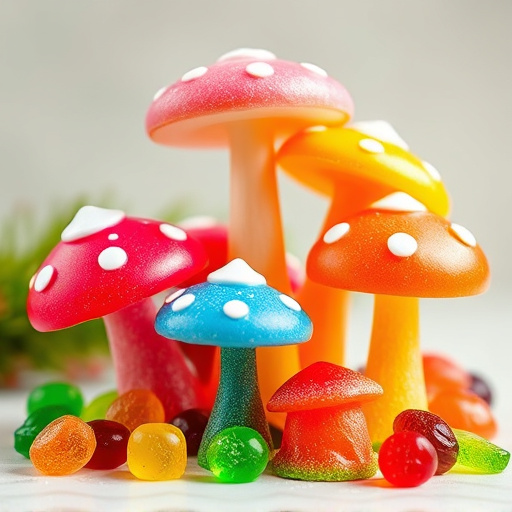
Magic mushroom gummies are a popular form of psilocybin consumption, offering a unique way to experience the potential benefits associated with this psychedelic compound. Beyond their appealing candy-like presentation, these gummies hold promise in various areas, including mental health and well-being. Research suggests that psilocybin, the active ingredient in magic mushrooms, can enhance brain plasticity—the brain’s ability to form new neural connections. This feature underpins several potential advantages. For instance, it has shown potential in treating depression, anxiety, and post-traumatic stress disorder (PTSD), as studies have indicated improvements in symptoms after psilocybin-assisted therapy.
However, alongside these benefits, there are risks to consider. Magic mushroom gummies, like any psychedelic substance, can induce intense psychological experiences that may be challenging for some individuals. These experiences can include altered perceptions, anxiety, and flashbacks. Furthermore, their recreational use carries the risk of adverse reactions, especially in unsupervised settings or when consumed in high doses. As such, it’s crucial to approach magic mushroom gummies with caution, ideally under professional guidance or within a therapeutic context where trained personnel are available to support individuals through potential challenges.
Magic mushroom gummies are an innovative way to explore the potential therapeutic benefits of psilocybin, a compound found in certain types of mushrooms. By enhancing brain plasticity, these gummies may offer a safe and controlled approach to treatment for various mental health conditions. However, it’s crucial to approach this topic with caution, as research is still evolving. Further studies are needed to fully understand the long-term effects and optimal dosage, ensuring that magic mushroom gummies live up to their potential as a game-changer in mental wellness, while mitigating associated risks.

